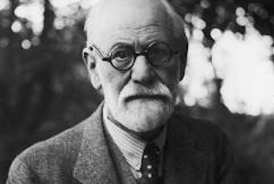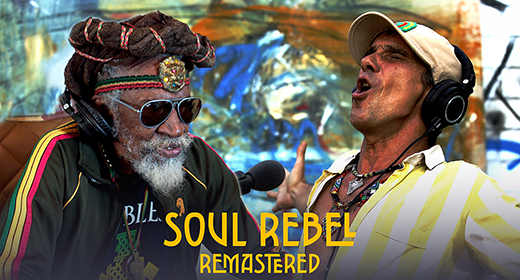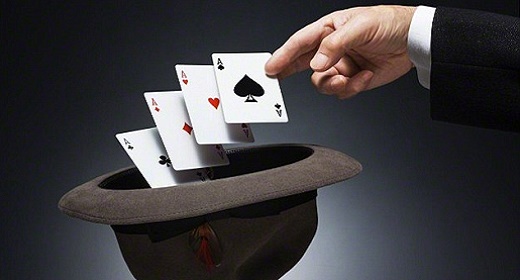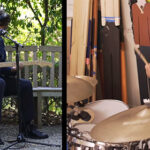by Sigmund Freud: As the main object of this assemblage is for practical purposes, I will therefore take as my opening address a practical theme which will appeal not so much to your scientific as to your medical interest.  I am indeed mindful of your judgment of the success of our therapy and I also take for granted that most of you have passed through the two initiative phases, to wit, the enthusiasm over the unexpected progress of our therapeutic accomplishment, and the depression over the enormous difficulties which stand in the way of our efforts. However, it really does not matter in what stage of this development some of you may be, I shall show today that we are by no means at the end of our therapeutic resources for combating the neuroses and that we have a right to expect a considerable improvement in our therapeutic chances in the future.
I am indeed mindful of your judgment of the success of our therapy and I also take for granted that most of you have passed through the two initiative phases, to wit, the enthusiasm over the unexpected progress of our therapeutic accomplishment, and the depression over the enormous difficulties which stand in the way of our efforts. However, it really does not matter in what stage of this development some of you may be, I shall show today that we are by no means at the end of our therapeutic resources for combating the neuroses and that we have a right to expect a considerable improvement in our therapeutic chances in the future.
1 I believe that the reinforcement will come from three sides:
| 1. Through inner progress. | |
| 2. Through a gain in authority. | |
| 3. Through the general effect of our work. |
2 By inner progress I understand the progress (a) in our analytic knowledge, (b) the progress in our technique.
3 (a) The progress in our knowledge: To be sure, we do not yet know everything that we need for the understanding of our patients’ unconsciousness. It is therefore clear that any progress in our knowledge means additional strength for our therapy. As long as we did not understand anything we did not accomplish anything; and the more we shall learn to understand the more we shall accomplish. In the beginning, the psychoanalytic treatment was inexorable and inexhaustible. The patient had to tell everything himself, and the activity of the physician consisted in constantly urging him to continue. Today things look brighter. The treatment consists of two parts, of that which the physician discovers himself and tells the patient, and of the elaboration of that which he heard from the patient. For the mechanism of our treatment is really very easy to grasp. We give the patient the conscious expected ideas through the model of which he is enabled to find in himself the unconscious ones. This is the intellectual help which facilitates for him the overcoming of the resistance between the conscious and the unconscious. I also call your attention that this is not the only mechanism utilized in the analytic treatment; you are all acquainted with the more powerful mechanism lying in the utilization of the “transference.” I shall endeavor in the future to deal with all these relationships which are important for the understanding of the treatment in a “General Method of Psychoanalysis.” Nor is it necessary for me to reject your objection that in the present practice of our treatment the proof of the correctness of our assumption becomes obscured. You will not forget that these proofs are to be found elsewhere, and that a therapeutic encroachment cannot be conducted like a theoretical examination.
4 Allow me now to touch upon some spheres wherein we can learn something new and where we actually discover something new every day. The most prominent of these is the symbolism in the dream and in the unconscious. A theme forcibly contested, as you know! It is no small merit that our colleague, W. Stekel, has earned, when he devoted himself to dream symbolism, unconcerned about the protests raised by all the opponents. Here there is really much to be learned; my “Interpretation of Dreams” written in 1899 received important supplements from the study of symbols.
5 I should like to tell you something about one of these newly recognized symbols. Sometime ago I learned that a psychologist who is unfamiliar with our work remarked to one of my friends that we are surely overestimating the secret sexual significance of dreams. He stated that his most frequent dream was of climbing a stairway and that there was surely nothing sexual behind this. Our attention having been called to this objection, we directed our investigations to the occurrence of stairways, stairs, and ladders in the dream, and we soon ascertained that stairs (or anything analogous to them) represents a definite symbol of coitus. The basis for this comparison is not difficult to find. Under rhythmic intervals and with increasing difficulty in breathing one reaches a height, and may come down again in a few rapid jumps. Thus the rhythm of coitus is recognizable in climbing stairs. Let us not forget to consider the usage of language. It shows us that the “climbing” or “mounting” is, without further addition, used as a substitutive designation of the sexual act. In French the step of the stair is called “la marche”; “un vieux marcheur” corresponds exactly to our “an old climber.” Concerning another interesting symbol, the one of “rescuing” and its changed significance you will find a description in our publication. 2 But I am forced to stop here else I shall not come to the other points.
6 Every one of you will convince himself from his own experience how different it is to face a new case after you have examined the structure of some typical case. Now suppose we could put together under a few formulæ the lawful in the structure of the neuroses, just as we succeeded in doing with the symptom formation of hysteria. How secured our prognostic judgment would thereby become! Indeed just as the obstetrician discovers from the inspection of the placenta whether it is completely expelled or whether harmful remnants are still left behind, so, independent of the result and the occasional state of the patient we could say whether we definitely succeeded in our work, or whether we must expect relapses or new symptoms.
7 (b) I hasten to the innovations in the technical spheres where the most part is still to be definitely confirmed, and where much is just now beginning to become clear. The psychoanalytic technique has now two objects in view, to save the physician effort, and to open to the patient the broadest avenue to his unconscious. You know that an important change has taken place in our technique. When we practised the cathartic treatment our aim was to explain the symptoms; next, we turned away from the symptoms, and aimed at the discovery of the “complexes”—a word that was made indispensable by Jung—; and now we turn our work directly to the discovery and the overcoming of the “resistances,” justly trusting that the complexes will readily surrender with the recognition and the overcoming of the resistances. Some of you have since then shown a desire to look over and classify these resistances. I would therefore ask you to examine your material in order to find out whether you can confirm the following connection: The most important resistances to the treatment in male patients seem to emanate from the father complex, and are explained by the fear for the father, spite against, and disbelief in the father.
8 Other new discoveries in the technique concern the person of the physician himself. Our attention has been called to the “counter-transference” which ensues in the unconscious feelings of the physician through the influence of the patient, and we advise that the physician should recognize and overcome this counter-transference in himself. Ever since a large number of persons practicing psychoanalysis have exchanged ideas concerning their experiences, we have noticed that every psychoanalyst can only go so far with his patients as his own complexes and inner resistances allow. We therefore demand that he should begin his activity with a self-analysis which he should steadily deepen as he gains experience from his patients. He who does not achieve such self-analysis should without further ado give up the idea that he has the ability to treat patients analytically.
9 We are also beginning to realize that the analytic technique has to be subjected to certain modifications which depend upon the form of the disease and upon the predominant impulse of the patient. We have started with the therapy of conversion-hysteria; but we must slightly modify our procedure in anxiety-hysteria (phobias). For these patients cannot produce the final material for the solution of the phobia as long as they feel themselves protected by keeping the phobic determination. Of course nothing is attained from the fact that from the beginning of the treatment they waive the protective measures and labor under the determination of the anxiety. One must therefore continue to bring them help by translating for them their unconscious until they can make up their minds to waive the protection of the phobia and expose themselves to a very moderate fear. Only after this has been accomplished does the material become accessible, the control of which leads to the solution of the phobia. Other modifications of the technique which are not yet ripe for judgment are required in the treatment of the compulsion neuroses. Many important as yet unexplained questions arise in this connection; namely, to what extent may some gratification be allowed the combated impulses of the patient during the treatment, and what difference it makes whether these impulses are of an active (sadistic) or passive (masochistic) nature.
10 I hope that you gained the impression that if we knew all which we are now only surmising, and if we will have brought about all the improvements in the technique to which the deeper experience of our patients must lead us, that our medical activity will then attain a precision and successful confidence not to be found in all special branches of medicine.
11 I said that we had much to expect from the gain in authority that must fall to our share in the course of time. There is no need for telling you much about the meaning of the authority. Only the smallest number of civilized people are able to exist without the support of others, or to pronounce an independent judgment. You cannot form too bad a conception of the mania for authority and of the inner instability of humanity. The extraordinary increase in the neuroses since the depotentialization of religion may furnish you with a standard for the same. The impoverishment of the ego through the great expenditure of repression which civilization demands of every individual may be one of the chief causes of this condition.
12 This authority and the enormous suggestion emanating from it was hitherto against us. All our therapeutic successes were aimed at this suggestion. It is really surprising that under such circumstances there were any successes at all. I will allow myself to go so far as to depict to you the delights of those times when I was the sole representative of psychoanalysis. I recall the patients who when assured that I could bring them lasting relief looked around my unpretentious surroundings and thought of my little reputation and title and then looked upon me as a possessor of a sure system of breaking a bank. They argued with themselves that if this man could do all he pretends he would look different. It was really not pleasant to perform a psychic operation while the colleague whose duty it should have been to assist took special pleasure in spitting into the field of operation, and while the relatives threatened the operator as soon as they noticed blood or the restless movements of the patient. Yet an operation should produce manifestations of reactions; in surgery we are long accustomed to it. They simply did not believe me, just as today they still believe us very little; under such circumstances there had to be some failures.
To form an estimate of the increase in our therapeutic chances if we gained general confidence, think of the position of the gynecologist in the Orient and in the Occident. All that the gynecologist is allowed to do in the Orient is done on the arm which is extended to him through a hole in the wall; he can only feel the pulse. But such an inaccessibility of the object is proportionate to the medical accomplishment. Our opponents in the Occident wish to allow us an almost similar disposition of the psyche of our patients. But since suggestion urged society to send the sick woman to the gynecologist the latter became the helper and saviour of the woman. Now do not say that if the authority of society came to our aid and considerably increased our successes, that this would still not prove the correctness of our assumptions. For suggestion can manifestly do everything, and our successes would then be considered successes of suggestion and not of psychoanalysis. Against this I can say that suggestion of society now favors hydro-, dietetic, and electro-therapy, and still these measures have not succeeded in combating the neuroses. It remains to be seen whether psychoanalytic treatment will be able to achieve more.
13 However, I must put a damper on your expectations. Society will not hasten to furnish us authority. Society must remain in a state of resistance towards us because we assume a critical attitude towards her. We inform her that she herself plays a great part in the causation of the neuroses. Just as we make an enemy of the individual by uncovering his repressions, so society cannot meet us with a sympathetic reply when we regardlessly lay bare her infirmities and inadequacies. Because we destroy illusions we are reproached for endangering ideals. It therefore seems that the condition through which I expect such great advance in our therapeutic chances will never come about. And still the situation is not as despairing as one would now think. As forcible as the interests and effects of humanity may be, there is still another force—the intellect. It does not gain authority in the beginning but is the more sure of it in the end. In the end the most cutting truths are heard and recognized especially after the injured interests and affects aroused by them have exhausted themselves. It was always so until now and the undesired truths which we psychoanalysts have to tell the world will meet the same fate, only it will not come so rapidly; we must be able to wait.
14 I must finally explain what I mean by the “General Effects” of our work, and how I came to put hopes upon them. Here we meet with a very remarkable therapeutic constellation, the like of which is perhaps not to be found elsewhere. Until you will recognize in it something long familiar, it will at first appear strange to you. For you know that the psychoneuroses are distorted, substitutive gratifications of impulses the existence of which one must deny to himself and to others. Their capacity to exist rests on this distortion and misjudgment. With the solution of the riddle they present and with the acceptance of this solution by the patients these morbid states become incapable of existence. There is hardly anything like it in medicine; in fairy tales you hear of evil spirits whose charm is broken as soon as one can tell them their secretly concealed name.
15 Now, instead of the individual patient, put all those suffering from neuroses,—society made up of healthy and abnormal persons—instead of the acceptance of the solution there, put here the general recognition, and a moment’s reflection will then convince you that the results will not be changed by this substitution. The success which the therapy can have in the individual must also appear in the masses. The patients could not make known their divers neuroses such as their anxious exaggerated love which conceals their hatred, their agoraphobia which tells of disappointed ambitions, their compulsive actions which represent their reproaches for, and safeguards against evil resolutions,—I say they could not bring them to light if their relatives and friends from whom they wish to conceal their psychic processes would know the general meaning of the symptoms. Or if they knew that whatever they produce in their morbid manifestations could really be interpreted by others. But the effect will not confine itself to the concealing of the symptoms,—after all inaccomplishable—for this forced concealment makes the illness inavailable. The communication of the secret attacks the most delicate point of the “etiologic adjustment,” which gives origin to the neuroses. What is gained by the disease becomes illusory and hence the only possible result of the changed state of affairs brought about by the indiscretion of the physician, is a suspension of the morbid production.
16 If this hope seems to you utopic, please remember that the removal of neurotic symptoms has actually been accomplished in this manner though only in isolated cases. Just think how frequently the hallucination of the Holy Virgin used to occur in former times among peasant girls. As long as such a manifestation drew a large crowd of believers or even resulted in the erection of a chapel over the holy shrine, the visionary state of these girls remained inaccessible to suggestion. Today even the priesthood has changed its attitude towards such manifestations. They allow the doctor and the policeman to visit the visionary girl; consequently the holy virgin seldom reveals herself. Or, allow me to study with you the same process, which I have formerly deferred for the future, in an analogous but lower and more easily observable situation. Let us assume that a circle of ladies and gentlemen of good breeding have agreed upon making a day’s excursion to some country place.
The ladies have decided among themselves that if one of them should desire to satisfy a natural want she was to say aloud that she is going to pick some flowers. But a mischievous joker discovered this secret and put on the printed program which was sent to those invited: if the ladies wish to ease nature they may say that they are going to pick flowers. Of course, none of the ladies would wish to make use of this covert allusion then, and this also makes impossible the use of any other similar formula. What will be the result? The ladies will admit unabashed their natural wants and the gentlemen will take no offense at it. Let us now return to our more serious case. Because the conflicts of life were too difficult for them so and so many persons have taken refuge in the neuroses and have thereby attained the unmistakable morbid gain, although it is a bit too costly for the time. What will those people be forced to do if the flight into the disease will be closed to them by the indiscrete explanations of psychoanalysis? They will have to be honest and acknowledge the impulses which become active in them, they will have to hold their own in the conflict, they will fight or give up, and the tolerance of society which will inevitably be brought about by psychoanalytic explanation will come to their aid.
17 However, let us remember that one must not face the world as a fanatical hygienist or therapeutist. Let us admit that this ideal prophylaxis of neurotic diseases will not benefit every individual. A great many of those who today are taking refuge in the disease will not be able to stand the test of the conditions of the conflict postulated by us, they will soon perish or do some mischief greater than their own neurotic disease. The neuroses really have their biological functions. They are protective measures and are justified socially. Their “morbid gain” is not always purely subjective. Who among you has not looked behind the causation of a neurosis and was not forced to admit that the neurosis was the mildest issue of all the possibilities of the situation? And should we really sacrifice so much for the eradication of the neuroses, if the world is filled with other inevitable misery? Should we therefore give up our efforts to explain the secret meaning of the neurosis as being in the end dangerous for the individual and for the workings of society, and should we waive the right of drawing practical conclusions from a fragment of scientific knowledge? No. I believe that notwithstanding all, our duty moves us to another direction. For the morbid gain of the neurosis is on the whole harmful for the individuals and for society. The misfortune that may result in consequence of our explanation work can surely only strike individuals. The return to a more truthful and more worthy state of society will not be too dearly bought at this sacrifice. But above all: all the energies which are now consumed in the production of neurotic symptoms in the service of a phantastic world isolated from reality, all these energies, even if they cannot contribute to the good of the world will nevertheless help to reenforce the cry for that change in our civilization in which alone we see salvation for posterity.
18 I should therefore like to dismiss you with the assurance that you perform your duty in more than one sense if you treat your patients by psychoanalysis. You not only work in the service of science by making use of the only and never returning opportunity for fathoming the mysteries of neuroses. You not only give the patient for his suffering the most effective treatment now at our disposal, but you also contribute your share to that enlightenment of the multitude from which we expect, indirectly, the most thorough prophylaxis against neurotic diseases.









































